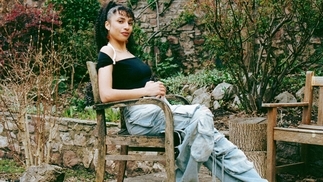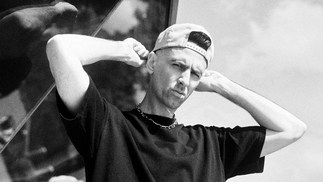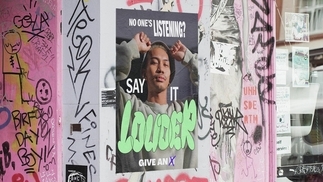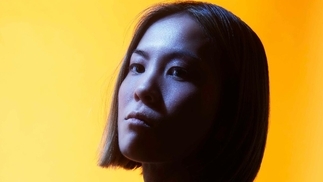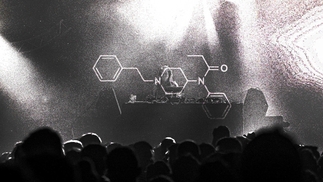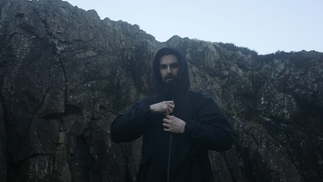Hannah Holland talks rave revival, rediscovery and leaving London
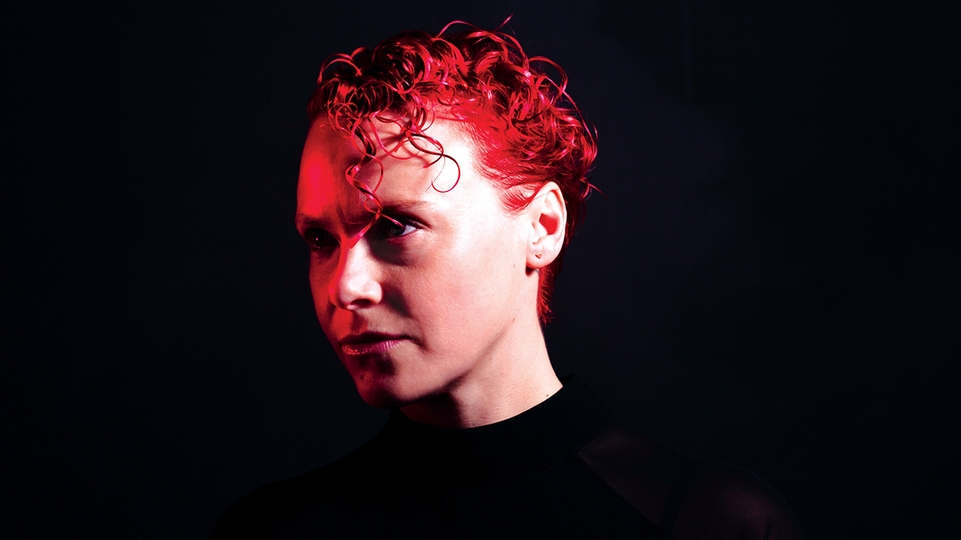
With a new EP driven by the rave and jungle sounds that first inspired her, and her Batty Bass club-night revived, Hannah Holland is having a moment. DJ Mag got in touch with the Margate-based DJ, producer, band member and label boss to talk about everything from the wild Trailer Trash days to her current residency at Adonis in London and her band Black Gold Buffalo. She's also served up a killer 60 minute mix as part of our Podcast series...
Rewind to the early noughties in London: Turnmills and The End were still in full swing, and Hackney still had a lawless feel with its after-party subculture. Mulletover was an institution, throwing secret warehouse raves all over the city. Shoreditch offered up the legendary gay pub the George & Dragon. It was around this time that Trailer Trash flung its doors open to the baying crowd of the East End. Situated at On The Rocks, under the bridge on Kingsland Road, a club described as ‘dark, underground, small and sweaty’ it was the party to be seen at, equipped with an open-minded, anything-goes attitude. It was here that Hannah Holland became a resident, snapped up by its founders Mikki Most and Dan Pope. Trailer Trash is just one of the many reasons that Hannah Holland has played such an important role in the clubbing evolution in London.
“It came at a time when there was nothing in Shoreditch at all, apart from the George & Dragon,” Holland remembers. “There were no bars, there were no clubs. Trailer Trash was a real hub for the very flamboyant, gay East End. It was very fun, and very wild. That’s where I met a lot of friends, DJs that ended up becoming great mates of mine 15 years later. People who I DJ with now, like Josh Caffé and Jonjo Jury.
“Around that scene was where I met the guys who started Trailer Trash. It was the right place, right time... the stars aligned and I became a resident there. It was something that grew really organically. Jonny Woo would be hosting, and it was a really nice mixture of people. At the beginning it started off gradually, and grew into this monster that would be road blocked every week. It was exciting.”
London back then was soundtracked by an eclectic mix of trends, from jacking house and techno to UK bass music or the emerging electroclash. It was music with attitude, and came with outstanding fashion.
“Electroclash was a resurgence of what was happening in the ’80s,” Holland says. “It really stemmed from the ’70s, from punk, and then came about again in the ’80s with the New Romantics, and reared its head in the early 2000s. There’s a very creative side of London popping up again. Queer, creative and progressive, which is really exciting.”
Back then it was a vinyl only affair. “CDJs weren’t invented. It took me years to move over to CDJs, because I just couldn’t get my head around why you would move over to that medium,” she says. “I started off collecting vinyl when I was 18, and it was only maybe in 2005 that people started playing CDs. It was all vinyl then, so I’d literally drag two record bags full of music around the million after-parties that I’d play. I’d be playing at about three events on a night every weekend. There’d be a Sunday party at Dove Bridge Studios, or various after-parties in Shoreditch that would continue after Trailer Trash on the Friday night. Sunday was a great night to go out — there were always fun things going on like Catch 22, Bones & Ramsey, and Mulletover in the early days. I would pretty much spend all my money in Phonica Records.”
A big part of Holland’s week would be stocking up on her vinyl collection. “Heidi [then working at Phonica] was my record dealer. She’d be really kind to me and pick me out loads and save me stuff. She introduced me to a lot, actually.” Many of the records that Holland played back then are still in her collection. It’s the music she describes as stemming from that, “breakbeat rave sound, melting with techno and house music. And obviously a lot of bass.”
They are the nostalgic records that she still pulls out on special occasions and during long stints, such as the closing of Panorama Bar; a legendary set that she’s played a handful of times.
“I had imagined playing there for years,” Holland says. “I would stock tracks to play one day at Panorama. I had this vision of what I wanted to play, and what I felt worked in that room, because I’d experienced it so many times and I wanted to bring what was new as well. I had so many years of imagining, it was a real dream come true to do it.”
The depth of her music collection is perhaps what defines Holland as such a respected DJ among her peers. Although her sound is constantly evolving, there’s a strong element of appreciation for the music she became known for at the beginning.
Having thoroughly invested her time in some of London’s wildest parties, it was a bold and appealing step to move away from the confines of other promoters into her own club night Batty Bass. “The party had a real energy, and was unique in terms of how eclectic the music was, but it had a real thread in the sound,” she says. It was an idea started alongside singer and close friend Mama (who at the time was in a punk rock band), putting on live bands, MCs and DJs, all mixed up to, “create this great chaotic energy”.
It also became the inspiration behind their first collaboration, ‘Shake It Up’. It was a record that epitomised the club night and soon-to-be-imprint; bass heavy, high-octane rhythms made for the dancefloor. At the time, they weren’t sure where it fit, so Holland decided to broaden Batty Bass into a label.
“It just made sense to do it,” Holland says. “So that’s why it started, and it just grew from there. We had a lot of artists that would come and play at the club, and they were making music that would fit the ethos of the label and the night. We wanted to have a platform for very creative characters, as opposed to just faceless DJs and producers. That’s what I was really attracted to when signing tracks by POSH! The Prince, Mama, Andre J, Warboy and The Carry Nation, they’re all so charismatic. They’re like stars to me. They’re the Andy Warhol Factory stars. They are the people that make clubbing so fun, interesting and creative.”
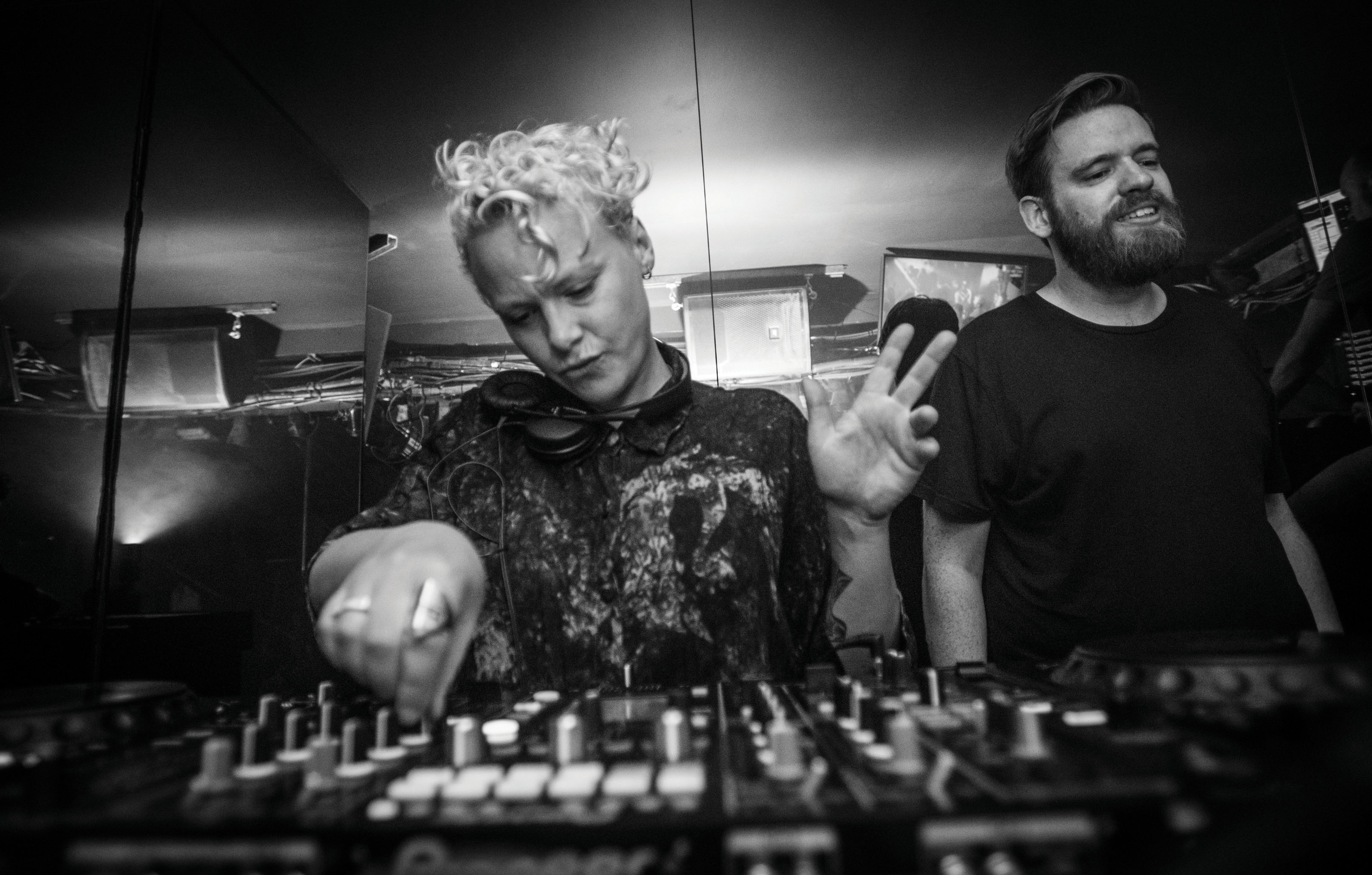
Veering outside of the normal trends and carving her own sound is something that Holland’s been doing for years. Aside from the DJ world, she’s deeply invested in projects such as Black Gold Buffalo, a band formed in 2014 (lead singer Keziah just happened to walk in the door to whisper the answer to that question), with a debut album released in April 2018.
“We went through a few variations of band members,” Holland says, “and the songs that we recorded on the album were a collection that we’d been writing over a period of about five years. It kind of started as a live thing... the love of playing music and playing live. We didn’t have anything recorded, as we didn’t know how to do it. It’s so different from recording electronic music.”
It wasn’t until they met a producer that understood their vibe that everything came together. “We spent a year with him making an album that we’d be working on for five years. We spent a lot of time perfecting it how we wanted it. We achieved what we had imagined, which was why we waited for so long really.”
The result is a set of atmospheric, expertly produced synthpop songs with a post-punk attitude, which tear the roof off in a live setting. The final tracks were recorded in Margate, the seaside town in Kent in which Holland and Keziah currently reside. So what inspired the move to the South East coast?
“We were getting really bogged down with crazy rent in London, and we wanted something new,” Holland says. “I met the legendary dub producer Adrian Sherwood in an artist liaison van in Croatia. In the van it was me, Adrian and Steffi from Berghain. None of us had met before, and we just had this really great conversation about music. Adrian and I were both born in London with a similar background, and he was asking what I was doing about living, and saying that if I wanted to do music, I’d need to put some roots down and invest in something house-wise.”
Adrian was living in Ramsgate and listed off a ton of creatives that were also residing there: namely Ashley Beedle, Congo Natty and Adamski (who Holland knew from Berlin). A couple of years later, they went to visit.
“We fell in love with it, and found somewhere for way less money, and it was a no brainer,” Holland says. “We moved there straight away, and just started hanging out with all these amazing legendary music producers and DJs.” It was in that mix that they met their current producer. “It was a beautiful situation. We were really lucky to meet him, and it was a real blessing that it happened.”
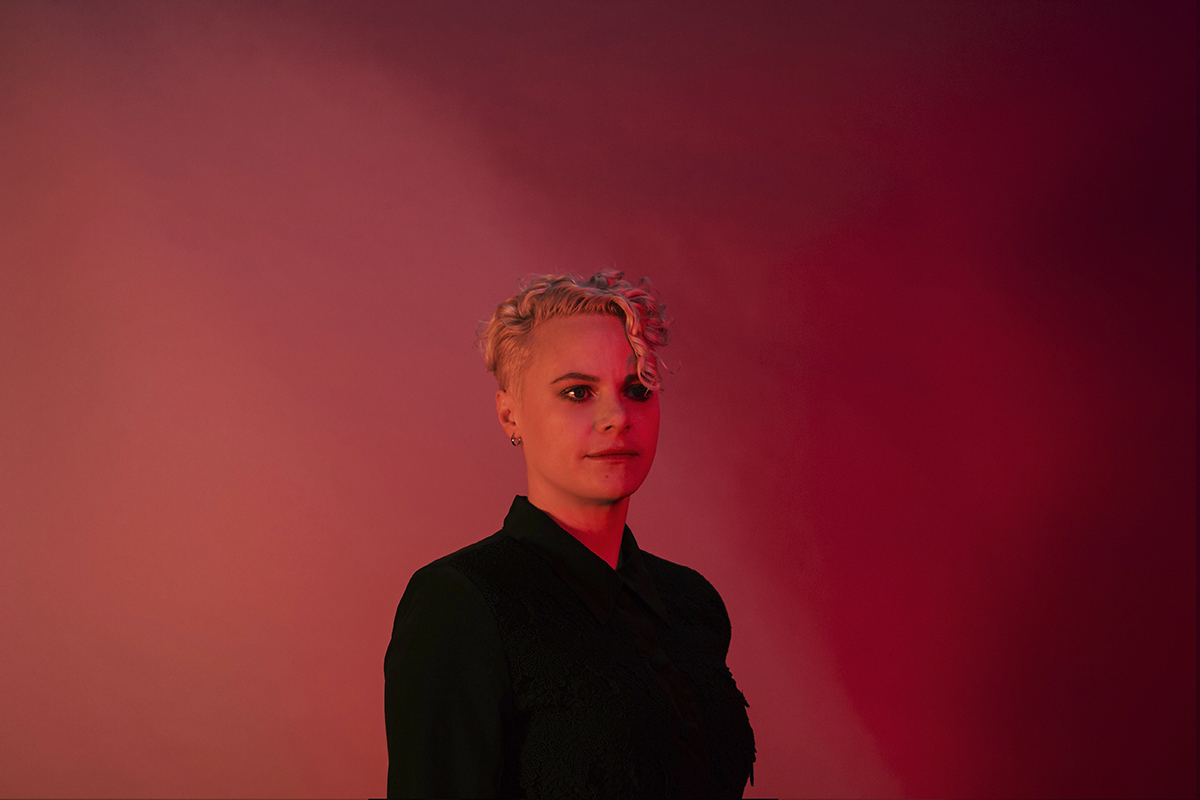
While the plan is to continue to work on new Black Gold Buffalo material, right now Holland is revelling in her latest EP, entitled ‘Mutualism’, that’s currently doing the rounds on Batty Bass. With remixes from friends who happen to be producers she rates highly — Alinka, Joyce Muniz and The Carry Nation — it’s heavily influenced by jungle breaks and old school UK rave.
“I hadn’t put anything out for ages,” she says. “I really wanted to go back to what really made me start being excited about music, like old jungle, Aphex Twin, Orbital, Warp Records. That was the first music I really adored back when I was first collecting records. I was listening to a lot of that and trying to incorporate it into some new music. I always try and get some of my idols in there, so I had Goldie, David Bowie, and Iggy Pop vocal snippets, and dBridge got sent it through promo and sent me a message on Twitter saying, ‘I love the EP, I’ve sent it to Goldie, I hope you don’t mind’. I was like, ‘shit’,” she laughs. “But Goldie sent me a message saying he loves it, so that was a real full circle moment. One of the first clubs that I ever went to that blew my mind was Metalheadz when I was 14, so it was definitely a huge influence on me. It’s amazing that he’s heard anything that I’ve done and liked it.”
The 14-year-old Holland would have been very proud. It’s an EP harbouring influences from her early raving days, and it’s been tearing up the clubs through her DJ sets. “It’s had the best feedback that I’ve had for anything that I’ve done before, so I’m really excited for it to actually come out,” she says.
One of the nights that she has free reign to play exactly what she wants at, much like the Trailer Trash days, is Adonis, where she’s now a resident playing alongside Grace DIY of NYC Downlow and one-off special guests such as Andy Butler of Hercules & Love Affair. A party started by Shay Malt, it’s landed a suitable home at North London warehouse The Cause.
“Adonis is like stepping into another dimension,” Holland says. “Somewhere people can be totally free to express themselves, let themselves get lost without any shit from the outside world. An important space for the LGBTQI+ community, it’s not for everyone. Music-wise, it’s a dream for me, I can really go hard and experiment, because people are there to dance their tits off and trust you. It’s a great club because the crowd are fucking off the scale, the promoter knows how to party and the venue put so much love into the space — and that is really what makes a club night special.”
Speaking of free-spirited affairs, Holland’s also bringing her own club night back on 15th March.
“We haven’t put on Batty Bass for a number of years,” she says. “We did a one-off in the summer of last year that was really brilliant, and it just seemed right to do it again.”
For 2019 she’ll be hosting it at Mick’s Garage: a building that was once used for vehicle repairs and is now a major player in London’s late night venues. She’s booked Resis’Dance, a DJ collective that are doing great things right now, and Ostgut Ton’s Virginia. “She is someone I just totally adore. An amazing DJ, and totally the right ethos for Batty Bass.”
Much like those that Holland signs to the label, and books for her parties, she’s a good friend and an artist with a totally original style. There’s another club-focused EP on the way to follow ‘Mutualism’ in April, and she’s currently working on film score music for a feature-length film. Whether playing bass guitar, producing her own style of club music, or creating cinematic sounds for the big screen, there’s nothing short of creative spark in everything Holland sets her mind to — in her Margate studios and beyond.
